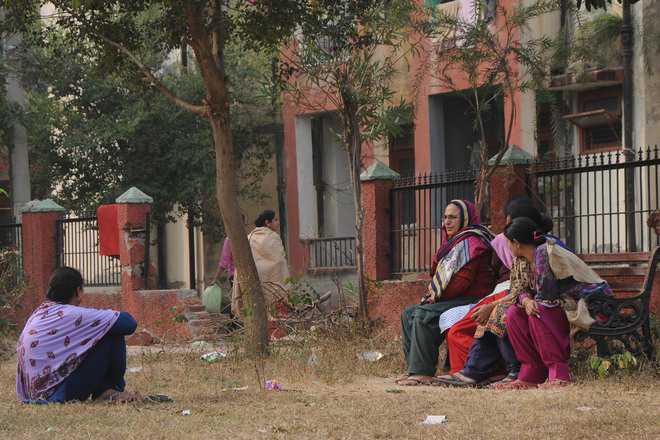Pandits feel community left out from Delhi’s Kashmir strategy
Sumit Hakhoo
Tribune News Service
Jammu, January 18
As Pandits observe ‘Holocaust Day’ on January 19, there is a growing feeling in the community of becoming “irrelevant” in New Delhi’s scheme of things.
Rising insurgency and frequent changes in government’s policy have pushed the resettlement of the community on the back burner.
For the past three years, the BJP-led government in New Delhi has made little progress in employment and rehabilitation package announced between 2004-2014 during the Congress-led government, mainly due to the worsening security situation.
The Centre’s appointment of Special Representative Dineshwar Sharma to initiate talks with stakeholders in J&K has also not evoked much enthusiasm among the community which sees him as a person tasked with a “separatist-specific” dialogue process.
“Politically the question of the future of Hindus cannot be answered easily as violence has not ended in Kashmir. The steps undertaken by the state since 1990 pertaining to relief, education quotas and return of the community have always been of a short-term nature,” said Ankur Dutta, assistant professor at South Asian University, New Delhi.
After the killing of Hizbul militant Burhan Wani in July 2016, the government is silent on the steps, which were announced earlier, as it has been confronting new challenges. From a U-turn on setting up composite townships due to the threat by militants to delay in the construction of multi-storey residential quarters for the PM package employees, every decision has been stalled.
The government’s focus is now towards rehabilitation of stone throwers and militants while no confidence-building measures have been announced for the community.
“Although Pandits are foremost stakeholders in any resolution of the Kashmir imbroglio, the successive governments have failed so far to understand their aspirations. The political parties, including the BJP, have exploited them for electoral gains but failed to provide justice to the community,” said Ashok Bhan, a senior lawyer in the Supreme Court.
“We don’t see any change in our status. The situation is only worsening and the rise in fundamentalism in the Valley is threatening the core of society. The minorities remain as vulnerable as they were 28 years ago,” said Vinod Raina, a PM package employee.
‘Holocaust Day’: When mobs ruled the roads
- January 19 is observed as ‘Exodus Day’ or ‘Holocaust Day’ by displaced Kashmiri Hindus as on this day in 1990 open threats were issued against the minority community across the Valley
- Mobs ruled the roads and there was a total collapse of civil administration following the resignation of the then CM Farooq Abdullah. It sparked the migration of the Pandits from the Valley
- For the past 28 years, groups have been organising protests to remember the events of 1990 and the plight of the community which is mainly staying in camps in Jammu and other parts of India









